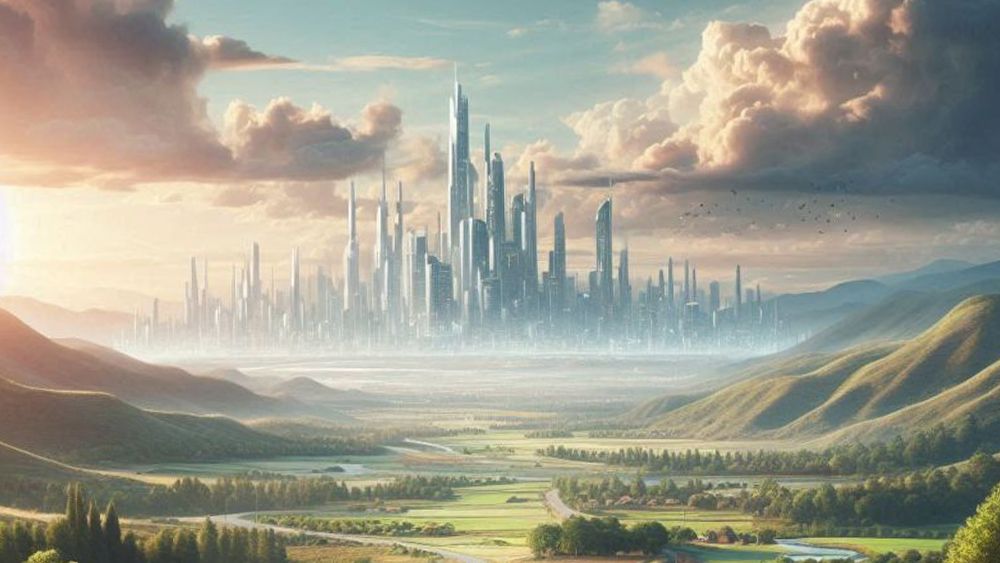Netflix appears to have just confirmed everyone’s worst fears about generative AI in the creative sector. Two weeks after closing its AAA gaming studio Team Blue and laying off human developers, it’s emerged that it’s creating an AI game development studio in their place.
Mike Verdu, formerly vice president of Netflix Games, is now vice president of genAI for games. In a post on LinkedIn accompanied by a generic-looking AI image of a dystopian cityscape blotting a rural landscape, he said he is “working on driving a ‘once in a generation’ inflection point for game development and player experiences using generative AI.”
But despite Verdu’s promise of “a creator-first vision for AI” that “puts creative talent at the center, with AI being a catalyst and an accelerant”, the timing doesn’t look good, and people have been quick to point that out.
Beyond the buzz phrases, Verdu doesn’t give any concrete detail about what the the project involves or what it’s working on, but he expresses optimism for the potential of AI game development. “Many view this technology with fear, but I am a game-maker at heart and I see its potential to unlock all of us, to create mind-blowing new experiences for players, to lift us to new heights,” he writes. “Yes, we’ll have to adapt and change, but when have we failed to meet that challenge as an industry?”
But Verdu’s announcement wasn’t received with the warm round of applause he might have been hoping for. “Didn’t you all just lay off a bunch of employees on your actual gaming division?,” one person pointed out in the comments. “I struggle to see how any genAI product could ever be creator first. I sincerely hope your endeavor fails and you don’t rip jobs away from real human beings that already make beautiful games so that you can live in some fantasy world where genAI games aren’t derivative slop.”
“It’s insane how far removed leadership of these initiatives are from the consumer base,” another person wrote. “Games are not like other media; you can’t just passively disassociate to games like some Netflix original slop running the background, you need to be engaged. There is a reason that the best games studio right now, possibly ever, is Rockstar Games and takes a decade of development to put out the next benchmark… I get this is all a scam for the boardroom boomers because they hear GenAI and clap like seals for mackerel but look at the game market right now; it’s hard enough to sell good games to consumers, let alone push junk.”
“This is very sad for Netflix. Using AI for helping artists optimize boring tasks is one thing, but to steal artworks styles and call it art produced by AI is different thing. And while it’s fine for homemade experiments, it’s shocking how VPs of incredible firms pretend that this is okay. It’s not. From where I come from as an artist, it’s called fraud.”
The comments over on X followed a similar vein. “Gotta get that grift in before people realize it doesn’t work to a production level product worth paying for. And if it did, then everyone could generate their own game which means yours is worthless in a sea of infinite supply,” one person wrote. “Get hired! take their money! leave when it shuts down in tree years!” someone else suggested. Others are saying they will cancel their Netflix subscription.
The response is another example that associations with generative AI art can still be highly toxic for brands. Transports for Ireland’s AI Halloween art is another recent example that faced a backlash online.
